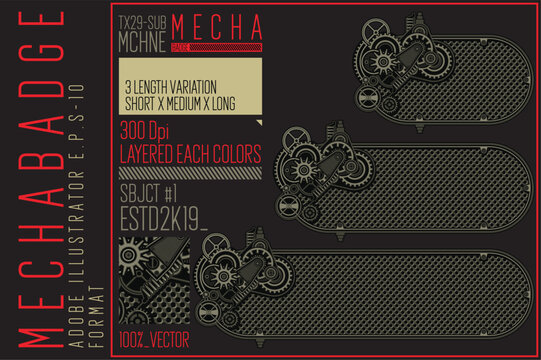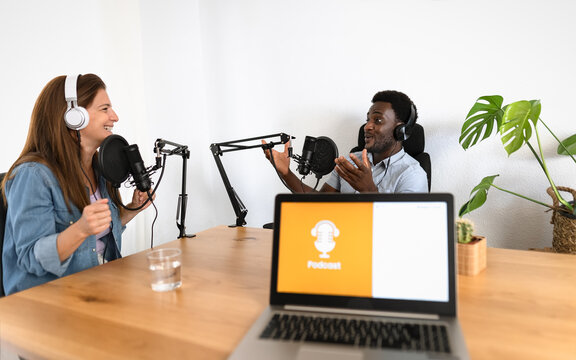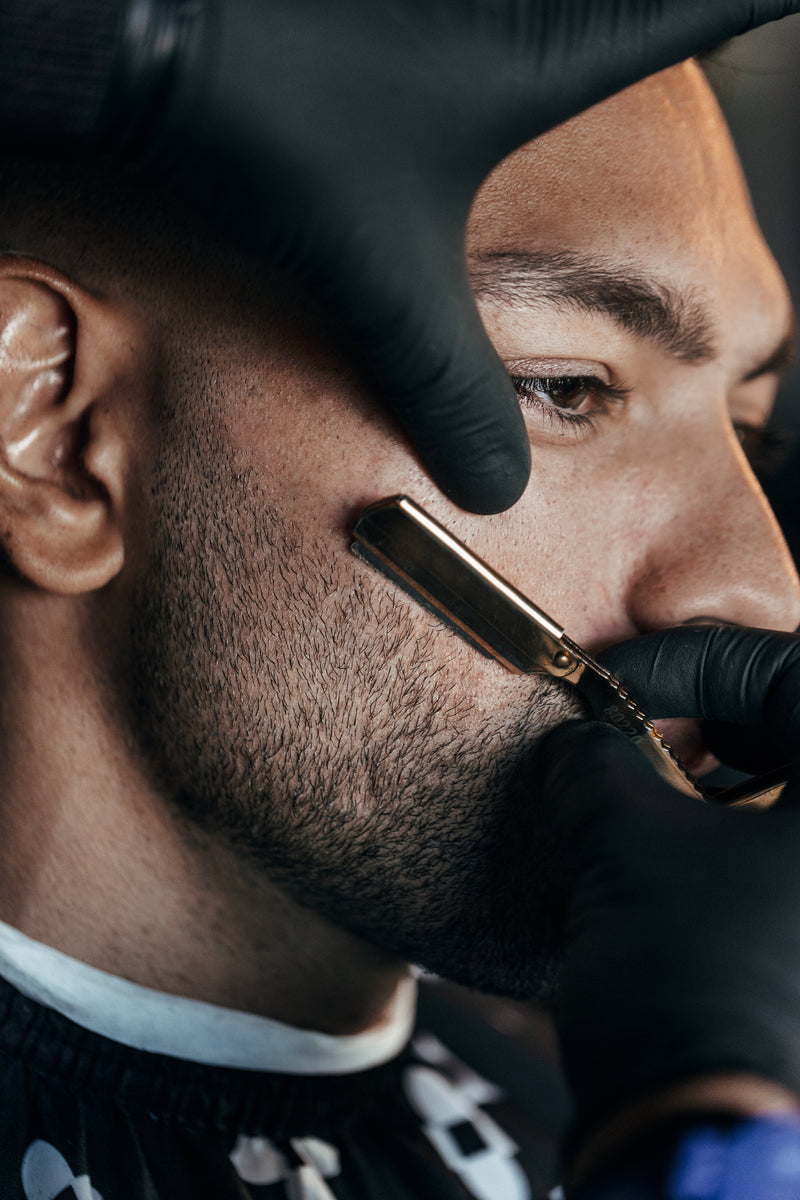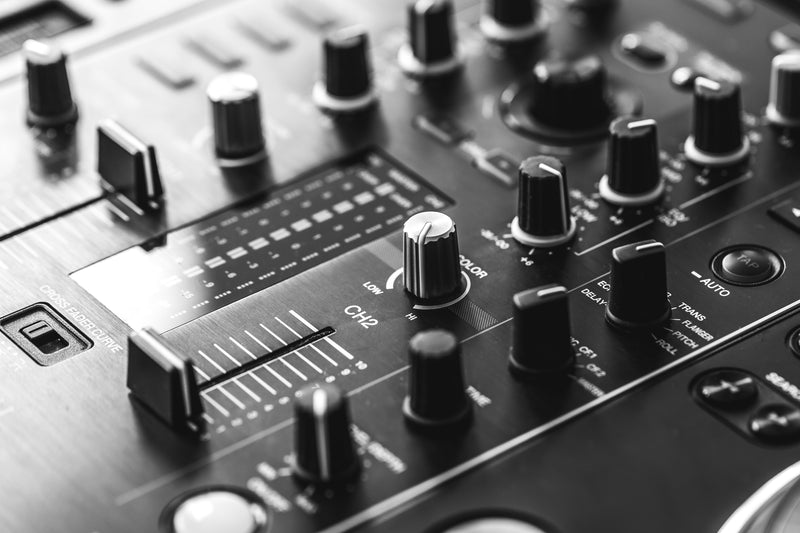Are you tired of listening to music that sounds like it was recorded in a cave? Do you want to know how to make your music sound as good as the pros? Look no further than a music production engineer. These professionals are responsible for making sure the music you hear is polished, balanced, and sonically pleasing. In this ultimate guide, we will explore the world of music production engineering, including the definition of a music production engineer, their importance in the music industry, and the qualifications necessary to become one. Whether you’re a musician looking to improve your sound or interested in pursuing a career in music production, this guide is for you.
Table of Contents

Qualifications to Become a Music Production Engineer
If you have a passion for music and want to become a music production engineer (MPE), there are a few qualifications you will need to meet. To become an MPE, you need to have a combination of education, technical skills, and soft skills. While a degree in music production or audio engineering is preferred, it is not mandatory. However, a solid understanding of music theory, composition, and production is essential to be successful in this field.
Education Requirements
While a degree in music production or audio engineering is not mandatory, it is recommended to have some formal education or training in the field. Having a degree in a related field such as music, sound engineering, or recording arts can set you apart from other applicants.
Technical Skills Required
As an MPE, you will need to have excellent technical skills in software and hardware used in music production. This includes Digital Audio Workstations (DAWs) such as Ableton Live, Logic Pro X, Pro Tools, and FL Studio. Having a good understanding of signal flow, EQ, compression, and other effects is necessary. Additionally, knowledge of microphone placement, recording techniques, and sound design is vital.
Soft Skills Required
Soft skills such as communication, problem-solving, and time management are also vital for success as an MPE. As an MPE, you will work with different artists, producers, and musicians. You need to be able to communicate effectively and work collaboratively to achieve the desired sound. You must also be quick to solve problems as they arise and manage your time effectively to meet deadlines.
Certifications and Courses
Certifications and courses can also help you become an MPE. Some of the popular certification programs include Avid Pro Tools Certification, Apple Logic Pro X Certification, and Ableton Certified Training. You can also take online courses on platforms such as Udemy, Coursera, and LinkedIn Learning to improve your skills and knowledge.
By meeting these qualifications, you can become a successful music production engineer and make a significant impact in the music industry.

Job Opportunities in the Music Industry
Music production engineers (MPEs) can work in various organizations within the music industry, such as recording studios, radio stations, live music venues, and record labels. The demand for MPEs is expected to grow by 9% from 2020-2030, according to the Bureau of Labor Statistics. This growth is attributed to the increasing demand for audio and video content in the digital age.
The median annual wage for audio and sound engineers was $53,940 in May 2020, making the field of MPEs a financially rewarding career. Moreover, freelance opportunities are also available for MPEs, allowing them to work with independent artists, bands, and producers to create high-quality recordings. Freelancing offers flexibility and allows MPEs to work on different projects simultaneously.
To succeed in the music industry as an MPE, it is important to network and build a strong portfolio of work. Building relationships with recording studios, independent artists, and producers can lead to new opportunities. Additionally, staying up-to-date with the latest music production techniques and technologies is crucial for MPEs to remain competitive.

Music Production Techniques: Enhance Your Sound
As a music production engineer (MPE), you must understand and master different music production techniques to enhance your sound. These techniques include the use of software, hardware, and instruments to create a unique sound. Here are some essential music production techniques:
Sampling
Sampling involves taking a portion of an existing song and using it in a new composition. It’s a prevalent technique used by MPEs in various genres of music, including hip-hop, EDM, and pop. Sampling can help you create a unique sound that stands out in the industry.
Drum Programming
Drum programming is the process of creating drum sounds using software or hardware drum machines. This technique is essential in producing electronic music genres like techno, house, and trap. It’s also useful in creating unique drum sounds that are not possible with traditional drum kits.
Synthesizer Programming
Synthesizer programming involves creating unique sounds using software or hardware synthesizers. It’s a prevalent technique used in electronic and pop music genres. A skilled MPE can create unique sounds using synthesizer programming that sets them apart from other producers.
Layering
Layering involves combining multiple sounds to create a new instrument or sound. It’s a technique used to add depth to a composition and make it more interesting to the listener. Layering can include adding different instrument sounds, vocal harmonies, and percussion.
Arrangement
Arranging involves structuring the different elements of a song to create a cohesive composition. It’s the process of organizing the different parts of a song, such as the intro, verse, chorus, and bridge, to create a musical piece. A well-arranged song can draw in listeners and make them want to hear more.
By mastering these music production techniques and knowing how to apply them to different genres of music, you can enhance your sound and stand out as an MPE in the industry.

Audio Engineering Techniques for Music Production Engineers
Audio engineering is the technical side of music production that involves capturing, processing, and manipulating sound using various tools and techniques. To become an expert MPE, you need to have a deep understanding of audio engineering concepts such as signal flow, gain staging, and frequency response.
Examples of Audio Engineering Techniques
EQ
EQ or Equalization involves adjusting the frequency balance of a sound to make it sound better. It is used to either boost or reduce certain frequencies of a sound. For instance, if a sound lacks clarity, boosting the high frequency can make it sound clearer. EQ can also be used to remove unwanted frequencies and create space for other sounds in a mix.
Compression
Compression involves reducing the dynamic range of a sound to make it more consistent. It helps to even out the levels of different parts of a sound and make it sound more polished. Compression can be used to add punch to a drum track, tame the peaks of a vocal performance, or add sustain to a guitar riff.
Reverb
Reverb is used to add a sense of space to a sound. It simulates the natural ambience of a room or hall and can make a sound more lively, spacious, and cohesive. Reverb can be used to create a sense of depth in a mix, add a sense of realism to a virtual instrument, or create a dreamy effect on a vocal track.
Delay
Delay involves creating an echo effect. It can be used to create a sense of space, add depth, or create a rhythmic effect on a sound. Delay can be used to create a sense of movement in a mix, add a sense of drama to a guitar solo, or create a psychedelic effect on a synth track.
Automation
Automation involves adjusting the levels of a sound automatically over time. It can be used to create dynamic effects, build tension, or add interest to a mix. Automation can be used to create a fade in or fade out effect, automate a filter sweep, or create a rhythmic effect on a sound.
Understanding these techniques and their application is crucial to becoming an expert MPE. By mastering these techniques, you’ll be able to take your music production skills to the next level and create professional-sounding mixes that stand out in the music industry.

Recording Studios: Commercial vs. Home Studios
When it comes to choosing a recording studio, you have two main options: commercial studios and home studios. Let’s take a closer look at each option:
Commercial Studios
Commercial studios are professional studios that are open to the public. These studios are equipped with state-of-the-art equipment and experienced engineers who can help you achieve the sound you’re looking for. The controlled environment of commercial studios is designed for recording, mixing, and mastering music, and can provide the best acoustics and sound quality. However, they can also be more expensive than home studios.
Home Studios
Home studios are personal studios that artists and producers use to create music. They are usually less expensive than commercial studios, but may not have the same level of equipment or acoustics. Setting up a home recording studio requires careful planning and investment in equipment, but it can provide more flexibility in terms of scheduling and creative control. With a home studio, you have the freedom to experiment with your music without the time constraints and costs associated with commercial studios.
Whether you choose a commercial or home studio, it’s important to consider your budget, the quality of the equipment, and the environment for recording. With the right equipment and techniques, a music production engineer can make great music in any setting.

Mixing and Mastering Techniques
Mixing and mastering are the final stages of music production, and they are essential to creating a polished and professional-sounding track. Mixing is the process of combining different tracks into a single stereo track. During this process, an MPE will adjust levels, balance the sound, and add effects. On the other hand, mastering is the process of preparing the final mix for distribution. During this process, the MPE will adjust the levels, the EQ, and compression.
To create a professional-sounding track, an MPE needs to apply various mixing and mastering techniques, such as:
Panning
Panning involves placing different sounds in different parts of the stereo field. By positioning the sounds in different locations, an MPE can create a sense of space and depth, making the track more interesting and engaging.
Volume
Volume is adjusting the levels of different sounds to create balance. By balancing the volume of different sounds, an MPE can ensure that each sound is audible and contributes to the overall sound of the track.
EQ
EQ is adjusting the frequency balance of a sound to make it sound better. By adjusting the EQ, an MPE can make the sound more prominent or subtle, depending on the desired effect.
Compression
Compression is reducing the dynamic range of a sound to make it more consistent. By compressing a sound, an MPE can ensure that it sounds more polished and professional.
Limiting
Limiting is preventing the sound from clipping or distorting. By limiting the sound, an MPE can ensure that it sounds clear and distortion-free, even when played at high volumes.
Understanding how to apply these techniques to different genres of music is critical to becoming a skilled MPE. With these techniques, an MPE can create a polished and professional-sounding track that is sure to impress.

Music Production Schools and Courses
If you’re interested in pursuing a career in music production, there are several music production schools and courses that can provide you with the necessary education and training. These schools and courses offer a comprehensive understanding of music production techniques and audio engineering concepts. Here are some of the top music production schools and courses available today:
Berklee College of Music
Berklee College of Music is a leading music production school that offers several programs in music production and engineering, songwriting, and music business. The college has state-of-the-art facilities, and students have access to world-class recording studios and equipment. The curriculum is designed to provide students with a comprehensive understanding of music production techniques and audio engineering concepts.
Full Sail University
Full Sail University offers various music production programs, including Music Production Bachelor’s degree, Music Business Bachelor’s degree, and Recording Arts Bachelor’s degree. The university’s curriculum is designed to provide students with hands-on experience using industry-standard equipment and software.
SAE Institute
SAE Institute offers a range of music production courses, including a Diploma in Audio Engineering and a Diploma in Music Production. The institute has campuses in several countries and provides students with access to state-of-the-art facilities and equipment.
Icon Collective
Icon Collective is a music production school based in Los Angeles, California. The school offers a range of programs, including Music Production and DJing, Music Business, and Sound Design. The curriculum focuses on real-world experience, providing students with hands-on training using industry-standard equipment.
Point Blank Music School
Point Blank Music School offers a variety of music production courses, including Music Production and Sound Engineering, Music Business, and DJing. The school has campuses in several countries and provides students with access to state-of-the-art facilities and equipment. The curriculum is designed to provide students with a comprehensive understanding of music production techniques and audio engineering concepts.
Attending a music production school or taking music production courses can provide you with a solid foundation in music production and audio engineering. If you’re considering pursuing a career in this field, researching and selecting the right school or course is crucial to your success.

Music Production Equipment
Music production equipment is a crucial aspect of music production and can be separated into different categories, including software, hardware, and musical instruments. Some of the essential equipment includes:
Digital Audio Workstations (DAWs)
Digital Audio Workstations (DAWs) are software programs used for recording, editing, and producing music. They provide a range of functionalities like virtual instruments, audio effects, mixing, and mastering tools. DAWs have become an essential tool for music production engineers, and some of the most popular DAWs include:
- Ableton Live
- Apple Logic Pro X
- Avid Pro Tools
- Steinberg Cubase
- FL Studio
- Presonus Studio One
MIDI Controllers
MIDI controllers are hardware devices that allow music production engineers to control software instruments and effects. They come in various shapes and sizes, such as keyboards, drum pads, and faders. Some of the popular MIDI controllers in the market include:
- Akai Professional MPK Mini
- Novation Launchkey
- Arturia KeyLab
- Native Instruments Komplete Kontrol
- Behringer U-Control UMX610
Audio Interfaces
Audio interfaces are hardware devices used to connect microphones and instruments to a computer. They help convert analog signals into digital signals that can be processed by a computer. Audio interfaces come in various shapes and sizes, and some of the popular audio interfaces include:
- Focusrite Scarlett
- Universal Audio Apollo Twin
- PreSonus AudioBox
- MOTU M2
- Audient iD4
Monitors
Monitors are speakers used to listen to the final mix of a song. They provide an accurate representation of the sound and are essential for music production engineers to make informed decisions. Some of the popular monitor speakers include:
- KRK Rokit
- JBL Professional 305P
- Yamaha HS5
- Mackie CR-X Series
- Presonus Eris E4.5
Microphones
Microphones are devices used to capture sound during recording. They come in various types, including condenser, dynamic, and ribbon microphones. Each type of microphone has its unique characteristics and is used in different situations. Some of the popular microphones include:
- Shure SM7B
- Audio-Technica AT4053B
- Rode NT1-A
- AKG Pro Audio C414
- Sennheiser MD421
When choosing equipment, it is essential to consider factors such as quality, compatibility, and budget. It is also important to choose equipment that fits your specific needs and preferences. Investing in high-quality equipment can make a significant impact on the quality of your final product.
Insider Tips for Aspiring Music Production Engineers
To help guide aspiring music production engineers, we have compiled some insider tips from experienced professionals in the industry:
Build a Network of Contacts
Building a network of contacts in the music industry is essential for success as a music production engineer. Attend music conferences, events, and meetups to connect with other professionals in the industry. Join online communities such as forums and Facebook groups to stay up-to-date on industry news and trends.
Continuously Learn and Improve Your Skills
The music industry is constantly evolving, making it essential to stay up-to-date on new techniques, equipment, and software. Take courses and attend workshops to improve your skills and stay current with industry trends.
Develop Your Own Unique Sound
As a music production engineer, developing a unique sound is crucial to standing out in a competitive market. Experiment with different techniques and equipment to find your signature style and keep refining your skills.
Be Open to Working with Different Genres
Working with different genres of music can broaden your skill set and provide new opportunities for growth. Don’t be afraid to step outside of your comfort zone and try working with different genres. This can help you develop a versatile sound and expand your client base.
By implementing these insider tips, aspiring music production engineers can take the first step towards a successful career in the music industry.

Freelancing and Marketing Yourself as a Music Production Engineer
In today’s fast-paced world, freelancing is a popular option for music production engineers as it offers a flexible work schedule and opportunities to work with different artists and producers. However, succeeding as a freelance music production engineer requires more than just technical skills and a strong portfolio. You need to market yourself effectively and have a strong online presence to showcase your work and attract potential clients.
To market yourself as a music production engineer, you need to have a strong portfolio and online presence. You can create a professional website that showcases your work, skills, and experience. Make sure to include a demo reel that highlights your best work and showcases your technical abilities. You can also create social media accounts on platforms such as Instagram, Twitter, and Facebook to stay connected with your audience and showcase your work.
Networking is also essential for music production engineers who want to succeed in the music industry. Attend music conferences, events, and meetups to connect with other professionals in the industry. You can also join online communities such as forums and Facebook groups to stay up-to-date with the latest trends and connect with other professionals in your field. Building strong relationships with other professionals in the industry can help you find new clients and opportunities.
Furthermore, it’s important to have a clear and concise brand message that communicates your unique selling proposition. Identify your target audience and tailor your marketing efforts to reach them effectively. For example, if you specialize in producing music for independent artists, focus your marketing efforts on platforms that cater to independent artists and musicians.
In summary, marketing yourself effectively as a music production engineer requires a combination of technical skills, a strong portfolio, a clear brand message, and a strong online presence. By building strong relationships with other professionals in the industry and staying up-to-date with the latest trends and technologies, you can position yourself as a top-notch music production engineer and attract new clients and opportunities.
Conclusion
To sum up, becoming a Music Production Engineer (MPE) requires a combination of education, technical skills, and soft skills. There are various job opportunities available in the music industry, including recording studios, radio stations, and record labels. A career as an MPE requires a deep understanding of music production techniques, audio engineering, recording studios, mixing and mastering, music production schools and courses, music production equipment, and marketing yourself as an MPE.
With dedication and hard work, anyone can become a successful MPE in the music industry. You can explore our other content to learn more about music production techniques, audio engineering, and other related topics. Remember, the key to success is to never stop learning and improving your skills.


